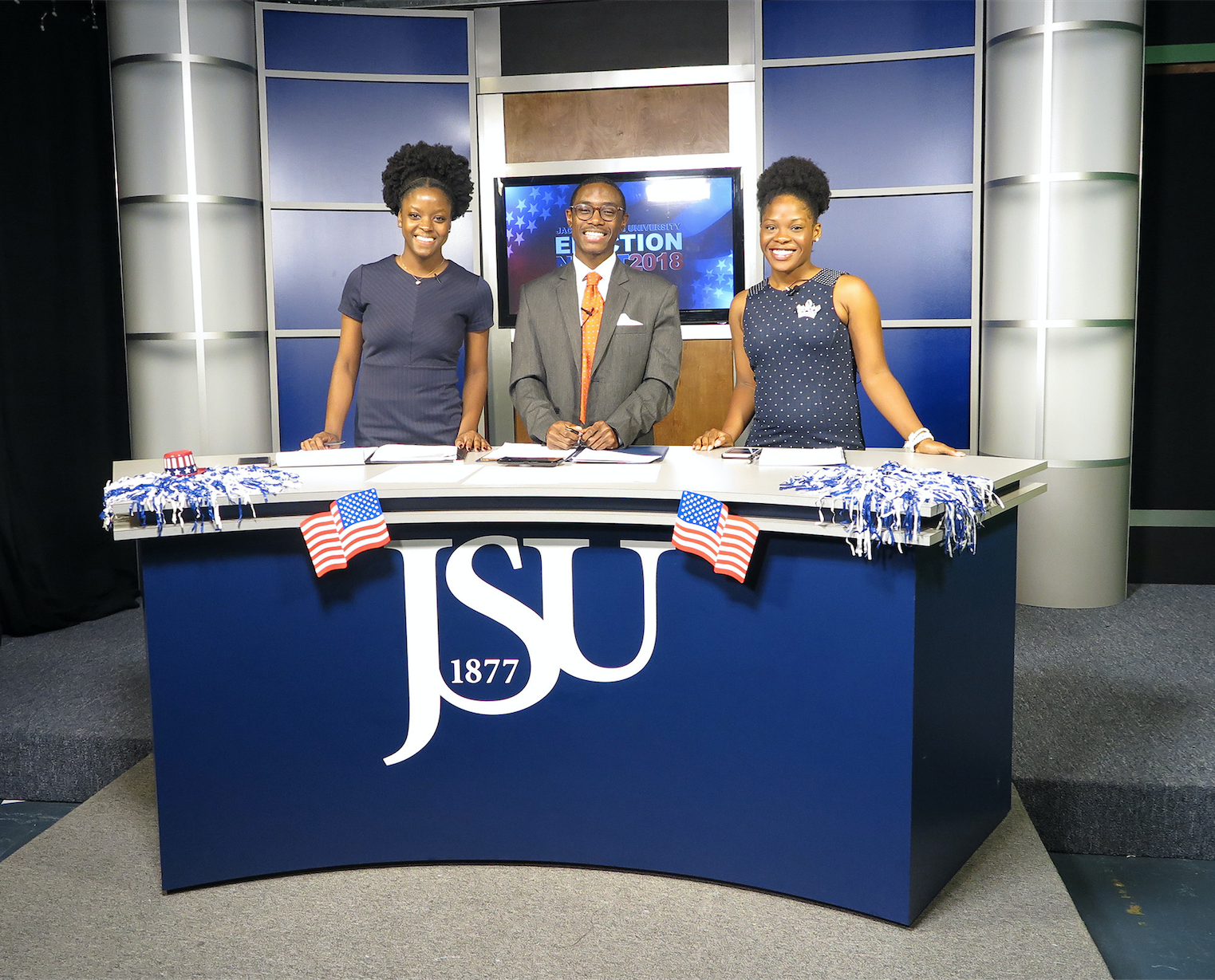
![]() [hr][hr]
[hr][hr]
Passionate debates, number crunching, and voter turnout discussions abounded during the Department of Journalism and Media Studies election-day coverage inside the Mississippi e-Center at Jackson State University on Tuesday.
Students, staff and faculty, engaged with a revolving door of politicians, analysts, community supporters and activists in a media event that employed the university’s full digital, print and television resources.
“Personally, I believe you always have to merge the theoretical with the practical,” said Dr. Elayne Hayes Anthony, department chair. Anthony first originated the event in 2016 to give mass communication and journalism students an up close and behind-the-scenes election coverage experience.
“It’s one thing to tell someone how to do something, and I think we do a great job of that. It’s quite another for them actually to participate in it,” she said. “I think the best teacher, in some ways, is to practice what you teach. That’s what we did Tuesday night, and I believe it was a teachable moment.”
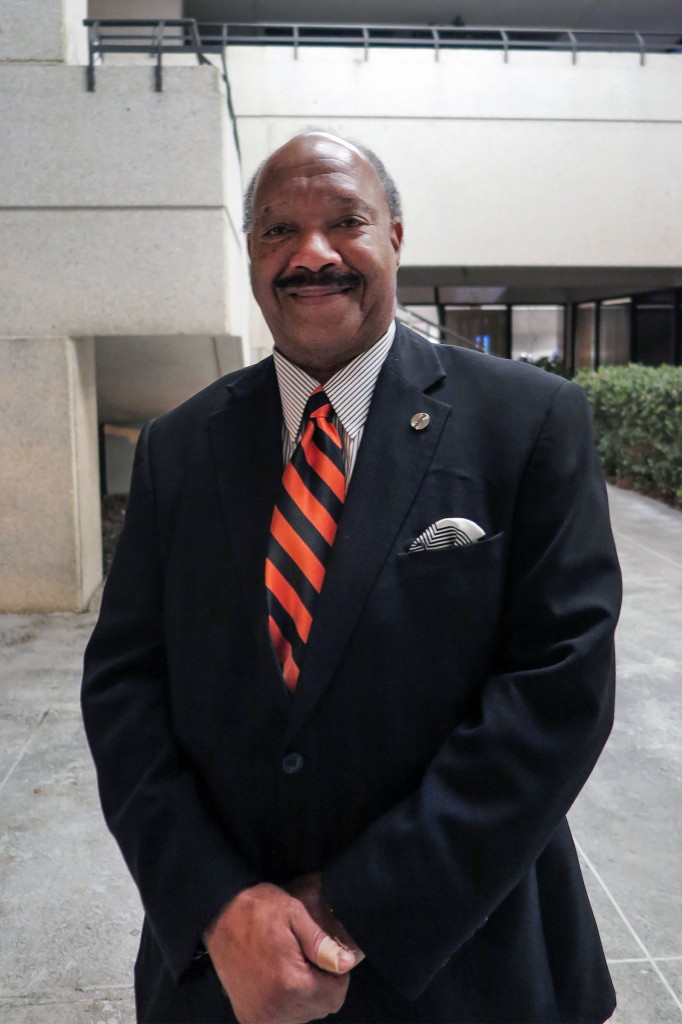
No dogs in the fight
Robert Graham, Hinds County District 1 supervisor, dropped by the event and momentarily expressed his thoughts on the voting process. He shared that there was almost a “zero chance” of hacking because the voting machines are not connected to the internet. Graham also explained that the county is equipped with a triple redundancy plan, so if anything should fail, a paper backup is associated with everyone who came to vote.
“Therefore, we are very proud of our voting machines. We are very proud that we can say ‘in the city of Jackson and Hinds County no one cheated,’” he said. “It’s a fair and balanced voting process. One thing about politics it’s very definite. There are only one to two outcomes. You’ll know, basically, immediately.”
Graham commended Jackson State University for ensuring students are thoroughly involved in the voting and election process. Matter of fact, he was headed to election central to meet a JSU student who would observe and shadow him during the collection and tallying of the ballots. Among a variety of things, the supervisor said he would share with his student-apprentice how and why the county contracts non-Mississippians to enter the votes in the computer so that they have “no dogs in the fight.”
Voter turnout vs. voter suppression
Inside the television studio, Anthony served as election anchor on a panel with Dr. Rickey Hill, former professor and chair of the political science department at JSU, and David Hampton, journalist and JSU adjunct professor of journalism. Both Hill and Hampton said they noticed an influx in voter turnout at their respective precincts and were pleased that more people showed up for the mid-terms.
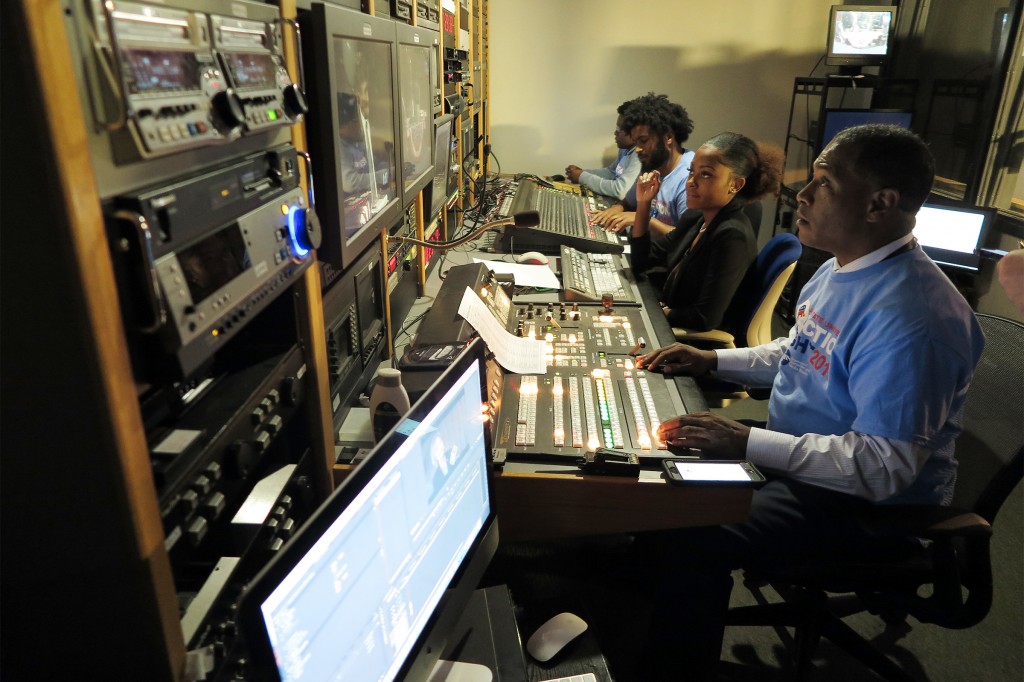
“I went to vote this morning, and the poll workers were excited about the number of people coming in to vote,” said Hampton. “And for a mid-term election, that’s unusual. Mid-terms are usually off, and they don’t have that type of participation.”
The United States Election Project shared that more than 47 percent of the voting-eligible population cast a ballot in Tuesday’s election and NPR said it was the highest turnout for a midterm since 1966.
Hill stated that while it was not a presidential election, it most certainly felt like one. He credited the boost to many voters who expressed, during interviews, that their primary motivation, outside of the issues, was the President Donald Trump.
When Anthony brought up reports of voting discrepancies across the nation whereas Mississippi had little to none, Hill interjected that it was a sign of improvement for a state that has had a long and sordid history of voter suppression.
“So, if we’ve reached this point now in the 21st century where those sorts of things have lessened, then it certainly is an indicator and bodes very well for where the future is going,” he said.
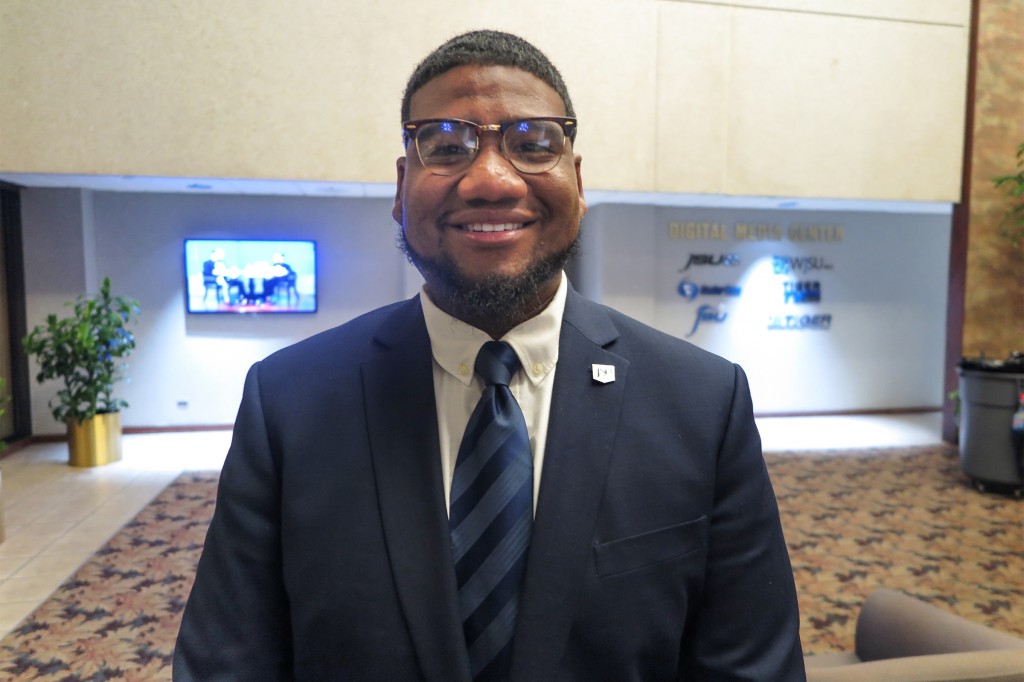
Brain drain and Hannity insanity?
Anthony shifted the topic to an incident that led to a national analysis on journalism ethics – the night Sean Hannity, a talk show host on Fox News, appeared to be campaigning with president Trump at a rally on Monday.
“It’s not good. It’s not ethical. It’s not right. I have problems personally or as a journalist of any journalist being put in that role,” said Hampton, who also worked as editorial director for the Clarion Ledger.
He further explained that the appearance of impropriety hurts not only the individual journalist but also the profession. The adjunct said that he is not a fan of liberal or conservative opinion leaning cable networks.
“But to actually show up at a campaign event and participate, it was not ethically right. I’m glad to see his Fox News colleagues calling his hand on that,” he concluded.
Across from the panel and slightly out of camera view, Jasmine Wroten, a mass communications and integrated marketing major, monitored social media for a pulse on election hot-topics.
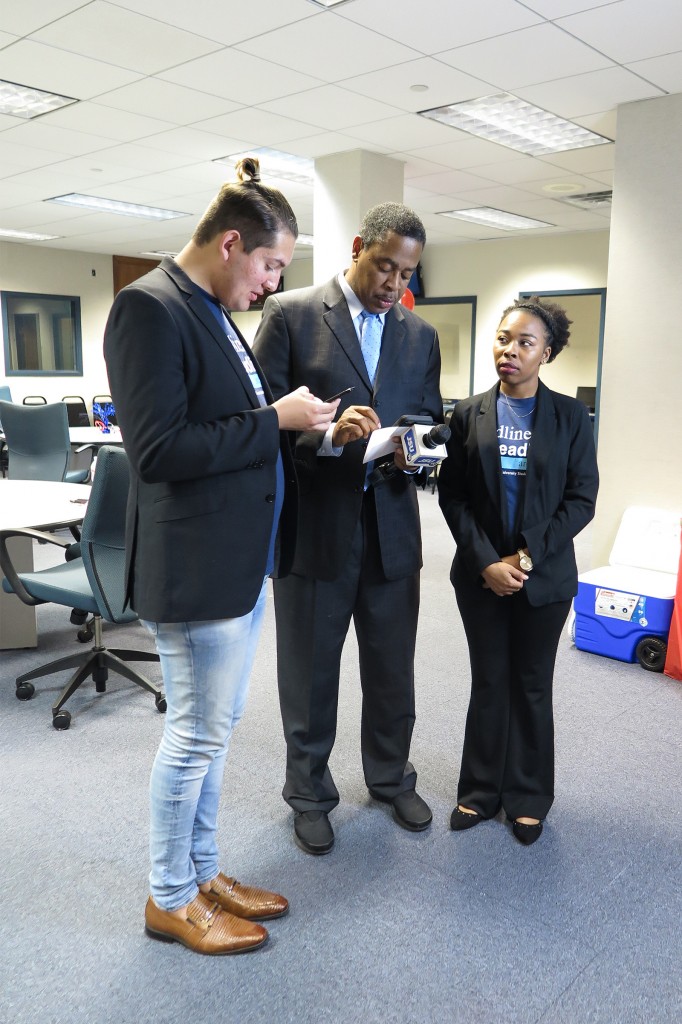
[dropcap]W[/dropcap]roten said candidate diversity was trending. “Many comments were about the different races, genders and even sexual orientations. So it was mostly about having more than just your typical white American, or black African American candidate. There was Muslim African American or Muslim White American. It was just the overall diversity,” she shared.
Regardless of outcomes, Wroten said that she is proud that millennials took the initiative to get up and vote. “Because unfortunately, the last election with President Trump and Hillary Clinton didn’t really go like we thought it would have. So this was kind of like our comeback,” said the aspiring public relations director.
Integrated marketing major Orion Taylor said it is imperative for his demographic to exercise their right and vote. “My ancestors, your ancestors, our ancestors had to fight for this literally. I deem it obligatory that we get out and vote so that we do have a voice.”
Taylor said he is concerned with low wages and the brain drain impacting the state of Mississippi. Soon to be in the workforce, he voiced the importance for candidates and politicians to focus on boosting the state’s economy through wage increases and creating job opportunities. His apprehension appears justified when Pew Research showed that 56 million millennials were looking for work in 2017.
A difference of opinion
Amid a panel discussion involving Joe Nosef, former chairman of the Mississippi Republican party, the atmosphere grew a little intense when Hill said that Trump was someone who does not read and is not plugged in. The retired professor said the president watches Fox News all day and uses Twitter to speak to people who are uninformed and do not want to be informed. This leads to battles about fake news and the media being the enemy of the people, said Hill.
“That’s why you lost in 2016. It’s because of that attitude,” argued the former chairman, who added that just because people are for Donald Trump, it doesn’t mean they are ignorant. It does not suggest they watch Fox News every day.
“What it means is that they felt like his policies were better for them than Nancy Pelosi and Chuck Schumer and that group of people,” he said, with obvious agitation. “It doesn’t mean they’re uninformed and uneducated.”
Nosef called it electoral peril to write off an entire group of people simply due to a difference of opinion.
Hill said that he was an Independent and his point was missed by the analyst. He attempted to clarify but was interrupted repeatedly. Later, in a one-on-one interview, he explained that “Republicans are not very good about people who make criticism of Donald Trump. Somehow, they think he’s above reproach, and I happen to be one who believes he’s not above reproach,” he said.
However, Hill expressed that people should be able to have these conversations out front and put everything on the table. He said he was merely trying to make a point about how people have latched on to Trump. He then called for discourse in the country.
“There is a way to in fact to do that to help the discourse. Get people to understand that if we just sit by and not say something, then we become part of the problem,” he said.
[dropcap]A[/dropcap]s fireworks flew, mass communications students Cianna Reeves, Clement Gibson, and Gabrielle Baker interviewed community activist Cassandra Welchlin, director of the Mississippi Women’s Economic Security Initiative, who said the election is an opportunity to close the wage-gap and put some wage laws on the books.
At the end of the night, Reeves enthusiastically described her moment in the anchor seat. “I’m really glad I was able to be a part of the panel. It was my first time doing something like this. I was excited,” she said. “This has broadened my knowledge on politics. My minor is in political science, so it all works hand in hand.”
Although the senior said she prayed for results that reflect the change she’s been wanting to see in the current administration’s behavior and politics, she will not feel defeated if outcomes are contrary.
“I’ll still feel hopeful. I’m not going to let an election discourage me or persuade me to believe our hearts are corrupt. I will not give up.”








